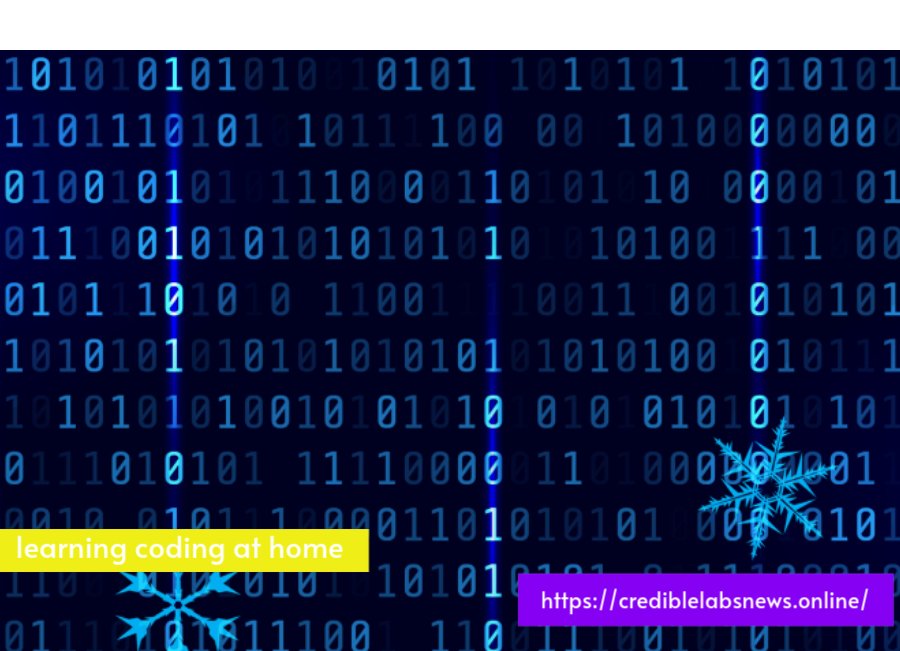Table of Contents
Embarking on a coding journey can feel overwhelming, especially if you’re starting from scratch. But don’t worry! Learning to code at home is not only possible but also incredibly rewarding. In this article, we’ll explore various strategies, tools, and resources to help you transition from a complete novice to a confident coder. So, grab your favorite beverage, get comfy,and we also tell you about learning coding at home and let’s dive into the world of coding!
Discovering the Coding Landscape
Before you jump in, it’s crucial to understand what coding is and why it’s valuable. Coding, or programming, is the process of creating instructions for computers to follow. These instructions allow us to build websites, apps, games, and so much more. In today’s digital age, having coding skills can open numerous doors—whether you want to start a new career or simply enhance your current job.Now that you know what coding is all about, let’s talk about the learning coding at home various programming languages you can learn. Each language serves different purposes. For example, HTML and CSS are essential for web development, while Python is great for data analysis and machine learning. By understanding these languages, you can choose which one aligns best with your interests and goals.
Setting Your Goals
Once you’ve familiarized yourself with the coding landscape, it’s time to set some clear goals. What do you want to achieve by learning how to code at home? Maybe you want to build your own website, create a mobile app, or even land a job as a software developer. Whatever your aspirations are, writing them down will help keep you focused and motivated.When setting goals, consider using the SMART criteria—Specific, Measurable, Achievable, Relevant, and Time-bound. For instance, instead of saying “I want to learn Python,” try “I want to complete an online Python course within three months.” This clarity will guide your learning process and provide a sense of accomplishment as you hit each milestone.
Finding the Right Resources
In today’s digital world, countless resources are available for learning coding at home. From online courses to YouTube tutorials and interactive coding platforms—there’s something for everyone! Websites like Codecademy, freeCodeCamp, and Coursera offer structured courses that cater learning coding at home to beginners.Additionally, consider joining coding communities such as Stack Overflow or Reddit’s r/learnprogramming. These platforms allow you to ask questions and connect with fellow learners who can provide support and encouragement. Remember learning coding at home is often more enjoyable when shared with others!

Creating Your Learning Environment
Your environment plays a significant role in how effectively you learn coding at home. Find a quiet space where you can concentrate without distractions. Make sure your workspace is comfortable—good lighting and an ergonomic chair can make a world of difference!Also, consider setting up a dedicated folder on your computer for all your coding resources. learning coding at home Organizing your materials will save you time and help keep your focus sharp as you navigate through different topics.
Starting with the Basics
As tempting as it may be to dive into advanced topics right away, starting with the basics is essential. Familiarize yourself with fundamental concepts such as variables, data types, loops, and functions. These building blocks form the foundation of all programming languages.Interactive platforms like Scratch can be an excellent starting point for absolute beginners. Scratch uses visual blocks that represent code snippets—making it easier to grasp programming concepts without learning coding at home getting bogged down by syntax errors.
Embracing Hands-On Practice
One of the most effective ways to learn coding is through hands-on practice. As they say, “Practice makes perfect!” After you’ve grasped basic concepts, start working on small projects that interest you. Whether it’s building a simple website or creating a basic game, applying what you’ve learned will solidify your understanding.Consider using platforms like GitHub to showcase your projects. Not only does this provide a portfolio of your work for future opportunities, but it also learning coding at home allows you to collaborate with other developers on open-source projects.Hands-on practice is where the magic happens in coding. When you write code, you engage with the material actively, which helps

reinforce your learning. It’s one thing to read about programming concepts and another to apply them in real-world scenarios. By working on projects, you can experiment with different approaches and troubleshoot issues as they arise, deepening your understanding of how coding works.Moreover, tackling real projects allows you to encounter and solve problems that you may not have considered in a theoretical context. This experience is invaluable because it mirrors what you’ll face in actual development environments. As you build and iterate on your projects, you’ll naturally develop critical thinking and problem-solving skills—essential tools for any coder.
Overcoming Challenges
Every learner faces challenges along their coding journey—it’s completely normal! When you’re stuck on a problem or struggling with a concept, take a deep breath and remember that persistence is key.Try breaking down complex problems into smaller parts; this approach often makes them more manageable. Additionally, don’t hesitate to seek help from online forums or learning coding at home coding communities when you’re feeling stuck. You’ll find that many others have faced similar challenges and are eager to share their solutions.
Staying Motivated
Maintaining motivation while learning how to code at home can sometimes be challenging. To keep your spirits high, celebrate small victories along the way! Did you finally learning coding at home understand how loops work? Great! Take a moment to acknowledge that achievement before moving on.Another effective strategy is setting up a study schedule that includes regular breaks. This balance will prevent burnout and keep your mind fresh for learning new concepts.
Expanding Your Knowledge
As you become more comfortable with coding basics, consider branching learning coding at home out into more advanced topics or different programming languages. For instance, if you’ve learned HTML and CSS for web development, why not explore JavaScript next? This language adds interactivity to websites and opens up even more possibilities for what you can create.Online platforms like Udemy or Pluralsight offer courses on specialized topics ranging from game development to artificial intelligence—allowing you to tailor your learning experience based on your interests.

Building Your Network
Networking might seem daunting when you’re learning how to code at home; however, it’s crucial for growth in this field. Attend local meetups or webinars related to programming; these events provide opportunities to connect with industry professionals who can offer valuable insights.Additionally, consider joining online groups or forums where coders share their experiences and knowledge. Engaging in discussions will not only enhance your understanding but also expand your professional network—a vital asset in any career path! if you want more information contact us!
Conclusion: Your Coding Journey Awaits
As we wrap up this guide on starting your coding journey at home, remember that every expert was once a beginner. Embrace the challenges along the way and celebrate each step forward! With determination and the right resources at hand, you’ll soon find yourself confidently navigating the world of code.So go ahead—take that first step! Your journey from zero to code awaits you with endless possibilities!


